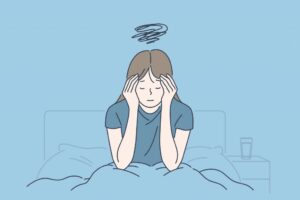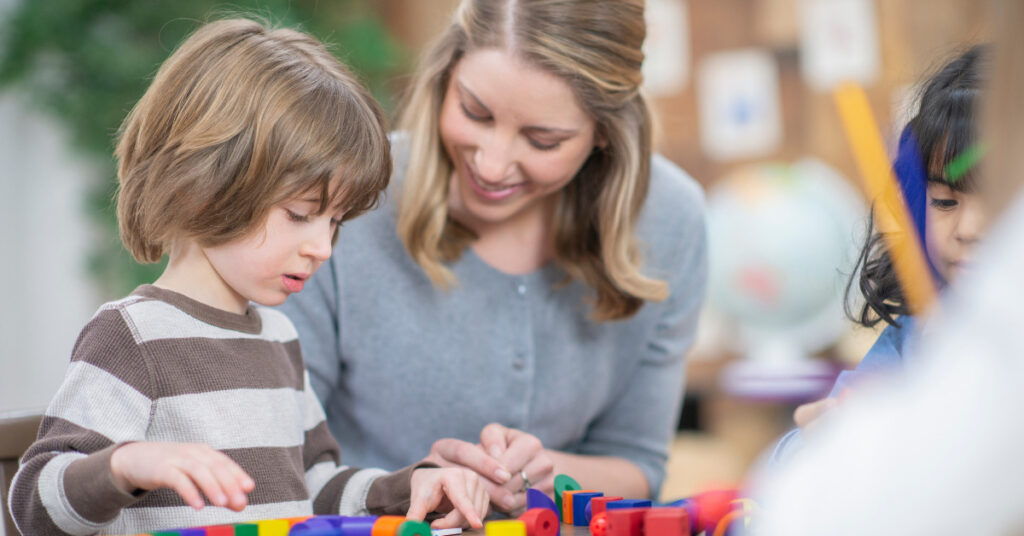OCD in children is on the rise and it is important to be able to identify the symptoms so that you can get your child the help they need. OCD can cause a lot of distress for children and their families, but there are things that you can do to help manage OCD symptoms. In this blog post, we will discuss OCD in children, what causes it, and how you can help your child live a normal life despite OCD.
Contents
Obsessive Compulsive Disorder

OCD is a mental health disorder that is characterized by obsessions and compulsions. Obsessions are intrusive, unwanted thoughts, images, or urges that cause anxiety or distress. Compulsions are repetitive behaviors or mental acts that a person feels compelled to do to relieve the anxiety caused by the obsessions. It can be a very debilitating disorder, but it is important to remember that it is also treatable.
OCD in Children

OCD is often recognized as obsessional and invasive thoughts and mental compulsions to perform physical compulsions. Obsessive Compulsive Disorder is not just something that adults suffer from, but children can also be affected by OCD. Children do such certain acts in the belief that it will prevent something bad from happening but this ‘bad’ does not have a realistic potential to occur. OCD usually begins in childhood with the average age of onset being around ten years old.
However, OCD n children can develop earlier. OCD in children can be diagnosed as young as six years old. It is one of the most common mental disorders in children and adolescents, with a lifetime prevalence of approximately two percent. It usually begins gradually and worsens over time if it is left untreated.
The good news is that OCD is highly treatable with evidence-based therapies such as exposure and response prevention (ERP) therapy. It is estimated that OCD affects about one in every 200 children and adolescents. Boys are more likely to develop OCD than girls, but the reason for this is not fully understood.
Tips to Manage OCD in Children

Recognize symptoms
OCD can present itself in many different ways, so it is important to be aware of the different OCD symptoms in children. These can include:
- Excessive hand-washing or showering
- Checking things excessively (e.g., making sure the door is locked)
- Arranging things obsessively (e.g., lining up toys)
- Repeating words or phrases over and over
- Avoiding certain places or activities
- Intrusive, unwanted thoughts or images
If you notice any of these OCD symptoms in your child, it is important to reach out to a mental health professional for help.
Modify Expectations
Change, particularly beneficial change, can be unpleasant for individuals with OCD. Change is often accompanied by an increase in distress for people with OCD; nevertheless, you may help to avoid stress by changing your expectations when things are changing. For example, if your child is starting a new school, you might tell yourself that it will probably take at least a week for him or her to feel comfortable with the new routine. This way, you are less likely to become frustrated when your child seems resistant to the change.
Encourage healthy coping mechanisms
It is important to encourage healthy coping mechanisms in children with OCD. Some healthy coping mechanisms include:
- Identifying and challenging OCD thoughts
- Exposing themselves to feared situations
- Practicing relaxation techniques
- Increasing physical activity
Reward Small Improvements
Family members who do not recognize how much work it takes to accomplish such things as reducing a shower by five minutes or refusing to check the locks may inadvertently punish a child for not “just doing it.” Instead, praise your child when he or she makes any progress, no matter how small. For example, you might say, “I can tell that was really hard for you to do. Good job!”
Recovery from OCD can be a long and difficult journey, but it is important to celebrate small improvements. This will help to motivate your child and show him or her that progress is possible. For example, if your child starts using the restroom without excessive hand-washing, give him or her praise and encouragement.
Set Limits
It is also important to set limits with your child. This can be difficult, as you want to be supportive and understanding; however, it is important to set boundaries in order to help your child manage OCD. For example, you might tell your child that he or she can only check the locks three times before bedtime. If he or she tries to check the locks more than that, you will redirect him or her to another activity.
It is also important to avoid accommodating OCD behaviors. For example, if your child is afraid of germs, you might be tempted to let him or her wear gloves all the time. However, this will only reinforce the OCD behavior and make it harder for your child to overcome OCD.
Seek Professional Help

If you are concerned that your child might have OCD, it is important to seek professional help. A mental health professional can assess whether your child has OCD and develop a treatment plan. While it can be difficult to see your child suffer, treatment for OCD is effective and can help your child lead a happier, more OCD-free life. professional help. With the right support, your child can overcome OCD and live a healthy and happy life
Simple and Clear Communication
When OCD is a part of your family, clear and simple communication becomes even more important. This is because OCD can make it hard to focus, remember things, and pay attention. For example, you might say to your child, “I will be in the kitchen for dinner. I will set a place for you at the table.” This way, your child knows what to expect and can be prepared for the next step.
Tolerating the unknown may be difficult for your child, especially if they have not been taught how to do so in ERP therapy. Recognize that uncertainty triggers your kid and identify the issue as one of attempting to achieve total certainty about something that cannot be given — this is the essence of OCD, and the objective is to embrace uncertainty in life
Private Time
It is also important to give your child some private time. This is the time when he or she can do OCD behaviors. For example, you might tell your child that he or she can go to his or her room to check the locks four times before bedtime. This way, your child can still do the OCD behaviors, but will not disrupt the rest of the family.
Normal Family Routine
As much as possible, maintain a normal family routine. This can be difficult when OCD is a part of your life, but it is important to keep things as “normal” as possible. For example, you might have family dinner every night or go on a weekend hike together. These activities will help your child feel like a part of the family and will give him or her a sense of stability.
Family Accommodation Behaviour
To get started, everyone must agree that it is in everyone’s best interest for family members not to participate in rituals or fulfill OCD requirements. OCD is not caused by bad parenting, so there is no need to feel guilty about this decision. OCD thrives on family accommodation because it provides individuals with OCD with a way to escape their anxiety. So, even though it may be difficult, it is important that family members do not give in to OCD demands.
This can be a difficult task, as OCD can be very demanding. However, it is important to stand firm and not give in to OCD demands. With time and patience, your child will be able to overcome OCD and live a happy and healthy life.
Conclusion
OCD is a common and treatable disorder that can cause a lot of distress for children and their families. If you think your child might have OCD, talk to your child’s doctor about what you can do to help them. There are several effective treatments available, including cognitive-behavioral therapy, medication, and exposure and response prevention therapy. With proper treatment, most children with OCD can learn to manage their symptoms and lead happy and successful lives.
Therapy Mantra is dedicated to providing information, resources, and support to families affected by OCD. If you or someone you know would like to seek help for OCD, you can book an online therapy or download our free OCD treatment app on Android or iOS.


